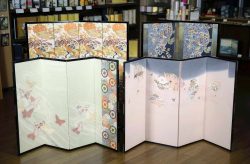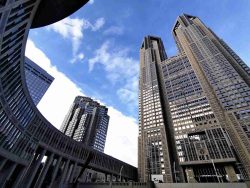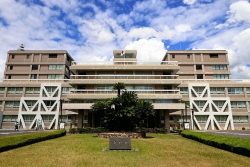Legacy of Otto von Habsburg, Last Crown Prince of Defunct Austro-Hungarian Empire, Showcased at Tokyo Museum

Georg von Habsburg, a son of Otto von Habsburg and the current Hungarian ambassador to France, speaks during an opening ceremony of an exhibition featuring his father’s life and legacy at the Minato City Local History Museum in Tokyo on Sept. 13.
13:49 JST, September 26, 2024
An exhibition about the life and legacy of Otto von Habsburg — the last crown prince to the defunct Austro-Hungarian Empire — is being held at the Minato City Local History Museum in Tokyo.
Otto von Habsburg (1912-2011) is known to have helped thousands of persecuted people, many of whom were Jews, flee the Nazis during World War II by using his diplomatic connections to issue visas and make other arrangements. After the war, he became a passionate advocate of Europe’s unification through such positions as longtime membership of the European Parliament and leadership roles in the International Pan-European Union.
The exhibition has on display various photos of him, including from his visits to Japan, offering a peek into the life of the scion of the Habsburg family. The exhibition was previously held in European cities such as Madrid, Paris and Zagreb. This is the first time for it to have been held outside Europe.
To commemorate the opening of the Tokyo exhibition, a lecture event and opening ceremony were held on Sept. 13 with significant figures from the Hungarian Embassy in Tokyo, the Hungarian government and the Otto von Habsburg Foundation in attendance.
This year, Hungary marks the anniversaries of two major events with 20 years of EU membership and 35 years since the Pan-European Picnic peace demonstration. During this symbolic event held on Aug. 19, 1989, at the Austrian-Hungarian border in western Hungary, the border was briefly opened and hundreds of East Germans fled to the West, paving the way for the fall of the Iron Curtain.
“Archduke Otto played a major role in both events. It is a great pleasure for us to be able to hold a gallery exhibition about him during this commemorative year,” Hungarian Ambassador to Japan Anna Aulner-Balint said in Japanese at the opening event. “It’s also a great pleasure to be able to introduce the historically, internationally renowned archduke to Japan.”
Gergely Prohle, the director of the foundation and one of the event speakers, talked about the continued significance of Otto today. According to Prohle, the scion of the House of Habsburg had more than 6,000 correspondence partners, and through this vast network, Otto gathered information and connected “the right people to the right people.” Among those he corresponded with were former U.S. President Franklin D. Roosevelt and former British Prime Minister Winston Churchill.
“His comprehensive view is extremely important in such a challenging time that we live in nowadays,” Prohle said.
In an increasingly severe situation such as Russia’s ongoing aggression against Ukraine, Europe’s unity has been tested. Georg von Habsburg, Otto’s son and the current Hungarian ambassador to France, stressed the importance of one of his father’s legacies — optimism.
“When I discussed with him political questions, he always finished with an optimistic idea about the issue that we were talking about,” Georg said during the opening ceremony when sharing an anecdote about his father, who was forced into exile at a young age but remained actively involved in turbulent events.

Various photos showing the life of Otto von Habsburg are displayed at the museum.
In Japan, the House of Habsburg may not be well known beyond history books, but this exhibition is likely to give visitors an opportunity to gain a new insight into the family.
“The name Habsburg rings a bell for many, but at the same time, the family seems to be more of a distant idea,” said Takiko Nakano, who visited the exhibition. “It was good to learn about him. I didn’t know someone from the family had connections to Japan.”
The exhibition, titled “Otto von Habsburg: Life and Heritage,” will be held until Oct. 16. Admission is free.
Top Articles in Culture
-

Director Naomi Kawase’s New Film Explores Heart Transplants in Japan, Production Involved Real Patients, Families
-
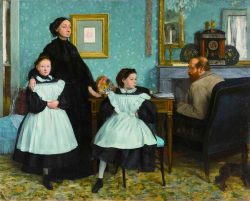
Tokyo Exhibition Offers Inside Look at Impressionism; 70 of 100 Works on ‘Interiors’ by Monet, Others on Loan from Paris
-
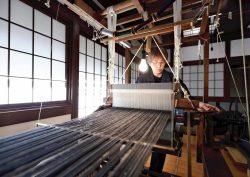
Traditional Japanese Silk Hakama Tradition Preserved by Sole Weaver in Sendai
-

Exhibition Featuring Yoshiharu Tsuge’s Manga World Underway in Chofu, Tokyo; Unique, Surreal Works Draw Steady Crowds
-

Japanese Film, Anymart, Wins Critics’ Award at International Film Festival in Berlin, Director’s Debut Feature Film Shocks Audiences
JN ACCESS RANKING
-

Producer Behind Pop Group XG Arrested for Cocaine Possession
-

Japan PM Takaichi’s Cabinet Resigns en Masse
-

Man Infected with Measles Reportedly Dined at Restaurant in Tokyo Station
-

Israeli Ambassador to Japan Speaks about Japan’s Role in the Reconstruction of Gaza
-

Videos Plagiarized, Reposted with False Subtitles Claiming ‘Ryukyu Belongs to China’; Anti-China False Information Also Posted in Japan


